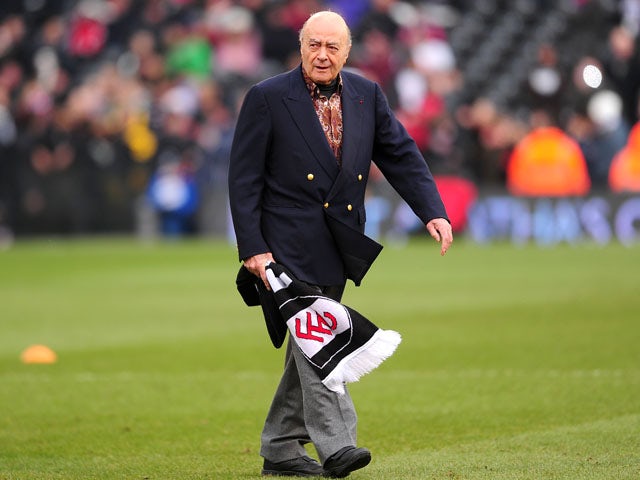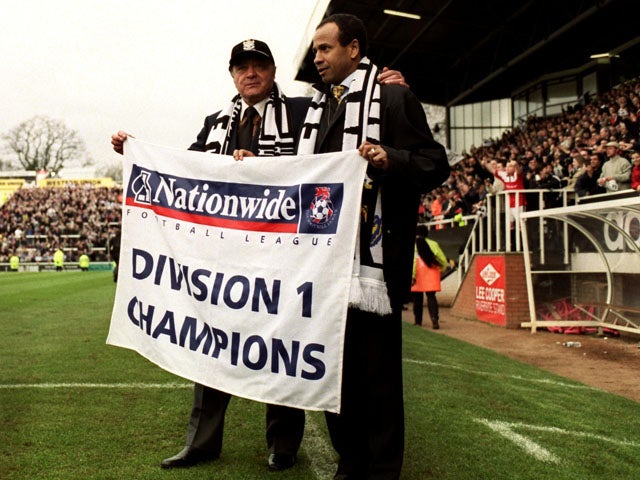If the latest rumours are to be believed, Fulham owner Mohamed Al Fayed is on the lookout for a potential suitor to take over at the West London club.
The news might come as a surprise to many, even though there have been hints in the last few years that the Egyptian was looking to wind down. Here, Sports Mole takes a look at just what Al Fayed has achieved in his time as Fulham chairman.
 © PA Photos
© PA Photos
Just as the Cottagers have become part of the furniture in the Premier League, so has Al Fayed at the club. Only the fans of the club and followers of football in the lower leagues can really remember a time without the Egyptian being in charge, such has been his influence over the past 16 years.
Back in 1995 Fulham were on the verge of dropping out of the Football League. With huge debts and seemingly no hope, no-one could have predicted what was about to happen. Along came Al Fayed in May 1997, the successful Egyptian mogul and owner of Harrods, who decided to take a chance and bought the club for £30m from then chairman Jimmy Hill. There was to be no looking back.
Fulham fans could excuse his somewhat ambitious claims that the club would reach the Promised Land in five years for they were just delighted that there was any future at all. Of course, he meant what he said and it was proven in just four years that Fulham would return to the top flight of English football after an agonising wait.
 © PA Photos
© PA Photos
In the old Division Two - now League One - money from a wealthy owner made all the difference. The other sides simply could not keep up as Fulham left an Egypt-sized hole behind them as they powered their way into the second tier under the guidance of manager Kevin Keegan.
Fulham were free-spending, but Al Fayed remained prudent with his money as he has to this day; he would not splash out for the sake of it. When Keegan left to take charge of the England national team, Al Fayed appointed Jean Tigana to take the club to the next level. Tigana, backed by Al Fayed to bring in the likes of Louis Saha, achieved the initial ambition by winning the first division in 2001.
His next claim? To turn Fulham into the "Manchester United of the south". To try to make that happen the Egyptian dipped into his pocket again to bring in new faces for Tigana. Some - Edwin van der Sar and Steed Malbranque - were a success but others, such as the £11m signing of Steve Marlet, would lead to Tigana's demise and ultimate sacking in April 2003.
Al Fayed reverted to prudence with Chris Coleman at the helm and his lofty ambitions turned to just consolidating the club in the top flight for as long as possible. Suddenly in 2007, after a miserable run under Lawrie Sanchez, Fulham's luck looked to have run out. They were floundering in the relegation zone and looked destined for the drop. Roy Hodgson was appointed in December and miraculously kept them in the Premier League.
Hodgson would go on to become Fulham's most successful manager, taking them agonisingly close to a famous Europa League victory in 2010. But it was Al Fayed's initial nous to appoint him that was just another in a long line of excellent decisions while in charge of the club.
 © PA Photos
© PA Photos
Al Fayed's backing might not have taken Fulham to the lofty heights he promised, but they remain an established Premier League club.
In many ways, Al Fayed was the original 'sugar daddy' of football. Of course, with the biggest clubs now owned by billionaires and not just millionaires, the Egyptian's outlay pales in comparison to the likes of Roman Abramovich and Sheikh Mansour Bin Zayed. But even with that taken into account, it is clear to all that Al Fayed's backing put Fulham where they are today.
Having sold Harrods in 2010 the signs were that he would soon look to find a new backer for Fulham. With this looking increasingly likely, his decision to essentially write off the club's £212m debts into equity mean that should he step down, the Cottagers will be a very enticing proposition for the new owner.









